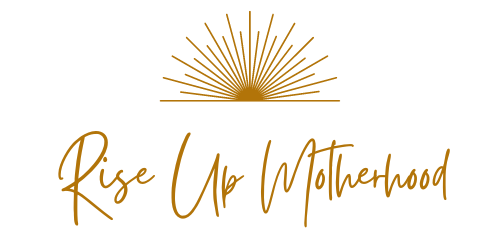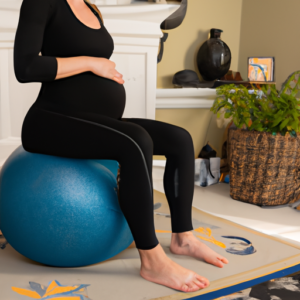Safe Seafood During Pregnancy: A Guide for Expecting Mothers
Pregnancy is a crucial time for making healthy dietary choices, and seafood is no exception. While fish is a valuable source of omega-3 fatty acids and essential nutrients, certain types of seafood can pose risks to expectant mothers and their babies. It’s important for pregnant women to be mindful of the types of seafood they consume to ensure a safe and healthy pregnancy. This article will provide a comprehensive guide to safe seafood choices during pregnancy, offering valuable insights and tips for expectant mothers.
The Benefits of Seafood During Pregnancy
Seafood is a nutrient-rich food that offers several health benefits, particularly during pregnancy. Fish and shellfish are excellent sources of high-quality protein, omega-3 fatty acids, vitamins, and minerals that are essential for the development of the baby’s brain, eyes, and overall growth. Additionally, consuming seafood during pregnancy may help reduce the risk of preterm birth and enhance the baby’s cognitive development.
Safe Seafood Choices for Expectant Mothers
During pregnancy, it’s important for women to be selective about the types of seafood they consume. Certain fish and shellfish contain high levels of mercury and other contaminants that can be harmful to both the mother and the developing fetus. The following are safe seafood options for expectant mothers:
Salmon
Salmon is a popular choice for pregnant women due to its high omega-3 fatty acid content, which is essential for the baby’s brain development. It is also a low-mercury fish, making it a safe and nutritious option during pregnancy. When choosing salmon, opt for wild-caught varieties whenever possible, as they tend to have lower levels of contaminants compared to farmed salmon.
Shrimp
Shrimp is a low-calorie, high-protein seafood option that is safe for pregnant women when cooked thoroughly. It is also low in mercury and contains beneficial nutrients such as vitamin D and selenium. When consuming shrimp during pregnancy, ensure that it is sourced from reputable suppliers and cooked to the recommended internal temperature to minimize the risk of foodborne illnesses.
Trout
Trout is another safe and nutritious seafood choice for expectant mothers. It is a rich source of omega-3 fatty acids and is low in mercury, making it a healthy option during pregnancy. Whether baked, grilled, or broiled, trout can be an excellent addition to a pregnant woman’s diet to support the development of the baby’s nervous system and overall growth.
Cod
Cod is a mild-tasting, versatile fish that is safe for consumption during pregnancy. It is low in mercury and provides essential nutrients such as protein, vitamin B12, and iodine. When preparing cod dishes, pregnant women should ensure that the fish is cooked thoroughly to eliminate the risk of bacterial or parasitic contamination.
Other Safe Seafood Options
In addition to salmon, shrimp, trout, and cod, pregnant women can safely consume other varieties of seafood, including tilapia, catfish, sardines, and anchovies. These fish are low in mercury and offer nutritional benefits that support the health of both the mother and the developing baby.
Seafood to Avoid During Pregnancy
While there are safe seafood options for expectant mothers, certain types of fish and shellfish should be avoided due to high mercury levels and other potential risks. The following seafood should be excluded from the diet of pregnant women:
Swordfish
Swordfish is known for its high mercury content, which can be harmful to the developing nervous system of the fetus. As such, pregnant women should refrain from consuming swordfish to minimize the risk of mercury exposure.
Shark
Shark is another type of fish that contains high levels of mercury and should be avoided during pregnancy. Mercury is a neurotoxin that can cross the placenta and harm the baby’s brain and nervous system, making it essential for expectant mothers to steer clear of shark meat.
King Mackerel
King mackerel is a large predatory fish that has elevated mercury levels, posing a potential risk to pregnant women and their babies. It is advisable to avoid consuming king mackerel during pregnancy to prevent mercury-related complications.
Tilefish
Tilefish, particularly from the Gulf of Mexico, is known to have high mercury levels and should be avoided by pregnant women. To protect the baby from potential mercury exposure, it’s best to refrain from consuming tilefish during pregnancy.
Raw and Undercooked Seafood
During pregnancy, it’s essential to avoid consuming raw or undercooked seafood, including sushi, sashimi, oysters, clams, and mussels. Raw seafood can harbor harmful bacteria, viruses, and parasites that may lead to foodborne illnesses, posing significant risks to both the mother and the baby.
Mercury Levels and Safe Consumption
Mercury is a naturally occurring metal that can be found in varying amounts in different types of fish and shellfish. While mercury is a concern for pregnant women, it’s important to note that not all seafood contains high levels of this contaminant. By being mindful of the mercury content in seafood and making informed choices, expectant mothers can safely incorporate seafood into their diets during pregnancy.
Mercury Advisory Guidelines
The U.S. Food and Drug Administration (FDA) and the Environmental Protection Agency (EPA) have provided guidelines for pregnant and breastfeeding women regarding safe seafood consumption. According to these recommendations, pregnant women can safely consume up to 8-12 ounces (2-3 servings) of low-mercury fish per week, including salmon, shrimp, trout, and cod. It’s important to prioritize seafood choices that are low in mercury to minimize potential risks to the baby’s development.
Monitoring Mercury Intake
To make informed decisions about seafood consumption, pregnant women can refer to the FDA and EPA’s online resources, which offer detailed information on mercury levels in various types of fish and shellfish. Additionally, consulting healthcare providers can provide personalized recommendations based on individual dietary preferences and mercury exposure concerns during pregnancy.
Safe Preparation and Cooking Methods
When preparing seafood at home, pregnant women should ensure that fish and shellfish are cooked to the recommended internal temperature to eliminate harmful bacteria and parasites. Proper storage, handling, and cooking practices play a significant role in minimizing the risk of foodborne illnesses associated with seafood consumption during pregnancy.
Closing Summary
In conclusion, seafood can be a valuable addition to the diet of pregnant women, offering essential nutrients and health benefits for both the mother and the developing baby. By making informed choices and prioritizing low-mercury options such as salmon, shrimp, trout, and cod, expectant mothers can safely enjoy the nutritional advantages of seafood during pregnancy. Understanding the importance of safe seafood consumption, avoiding high-mercury fish, and following recommended guidelines can contribute to a healthy and positive pregnancy experience. As always, consulting healthcare providers and staying informed about the latest recommendations on seafood safety during pregnancy is crucial for making well-informed dietary decisions.





